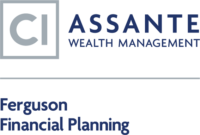A Strategic Approach to Minimizing Probate Fees
It is a fact that tax implications are an inevitable part of financial decision-making. However, many individuals struggle to grasp the nuances of tax regulations and often find themselves at a loss when it comes to minimizing their tax exposure.
In this article, we would like to share a case of our clients. We believe that by sharing their story, we can help others who might be facing similar situations to understand the importance of proactive financial planning and the impact it can have on their financial well-being. So, let’s dive in and explore the steps we took to help our clients mitigate their tax exposure and protect their assets.
We had the opportunity to work with a couple in their mid-70s who were concerned about the tax implications of owning their home on leased land. Our discussions with them not only helped address their immediate concerns but also unearthed an important issue that had the potential to save them a significant amount of money in probate fees.
Ownership of the Home
Upon further investigation, we discovered that the home was in the name of just the wife due to the husband’s concerns about potential liability from his business. However, since the husband is now retired and no longer has that liability, it is recommended that the ownership of the home be changed to include both the husband and wife. This change will help protect their assets and ensure that their estate is not liable for probate fees.
Tax Consequences
We explained to the clients that owning a home on leased land does not attract any tax from either a death or a sale of the property.
Additionally, there are no tax consequences if one or both of them should pass away since they are entitled to the principal residence exemption on death. However, there is a risk of probate fees if the wife were to pass away, which could amount to potentially $45,000 on the value of the house.
Bank and Investment Accounts
In addition to the home, their bank and investment accounts were also in their individual names, exposing them to an additional $50,000 in probate fees. We recommended that their bank and investment accounts be put in joint names.
Benefits of Joint Ownership
By changing the ownership of their home and accounts to joint names, the clients can ensure that their assets are protected and their estate is not liable for probate fees. Additionally, joint ownership can provide other benefits such as simplified administration in the event of incapacity or death, improved creditor protection, and more.
In summary, we eliminated this couple’s exposure to $95,000 in probate fees. It is our responsibility to educate and guide our clients through the complex world of taxation, and empower them to make informed choices that align with their financial goals.
We can help
We are here to help you meet your investment goals and we welcome your questions. We work with business professionals, executives, and families to grow and protect their wealth using our Wealth Plan formula. To discuss our approach and if it is the right fit for you, we invite you to schedule a no-obligation discovery consultation.
Important Disclaimer
This case study is provided for illustrative purposes only to provide an example of our process and methodology. The results portrayed is not representative of all of our clients’ experiences

